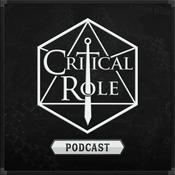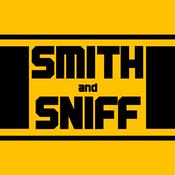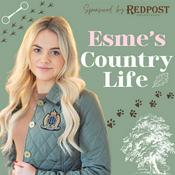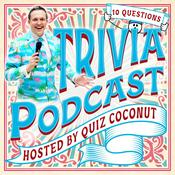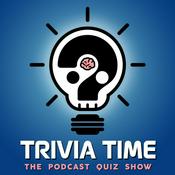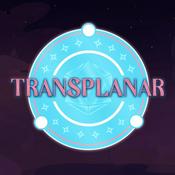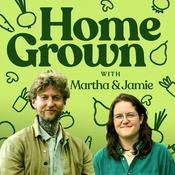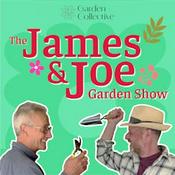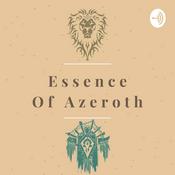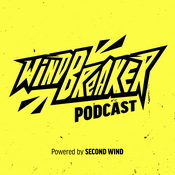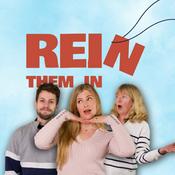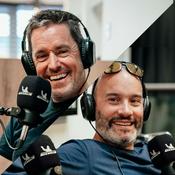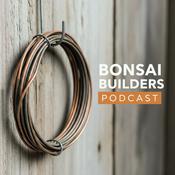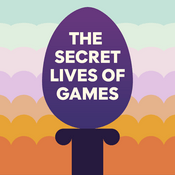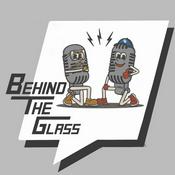368 episodes
- Dr. Russell Sharp explores how breeders, genetic tools (including CRISPR) and environmental controls in hydroponics can reduce strong or bitter flavours in vegetables.
He highlights examples—low‑sulphur Brussels sprouts and onions, milder marrows/zucchini, soap‑free coriander, low‑oxalate spinach, less‑phenolic eggplant and sweeter lettuce—and points to hydroponic fertilizer strategies and business opportunities for growers and breeders.
https://eutrema.co.uk/shop/soil-conditioners/liquid-gypsum/
Christoph Matthes — Kultursaat e.V.
Nigel Kingston — Syngenta Seeds
Kevin Dudley — Cloughjordan Community Farm
Pat Malone — Cloughjordan Community Farm
Alfred Breed (Senior) — Mertoun Gardens
David Cain — International Fruit Genetics (IFG)
Rob Johnston Jr. — Johnny’s Selected Seeds
V. Ognev — Agrofirm Poisk
N. Geraskina — Agrofirm Poisk
Frits Herlaar — Rijk Zwaan
Hoza Zaden — Hoza Zaden
Allium Seeds UK — Allium Seeds UK
Bejo Zaden — Bejo
De Groot en Slot — De Groot en Slot
Nunhems — BASF Vegetable Seeds
Seminis — Bayer Crop Science
Syngenta Vegetable Seeds — Syngenta
Rijk Zwaan — Rijk Zwaan
Enza Zaden — Enza Zaden
Sakata Seed Corporation — Sakata
Takii & Co. — Takii
Tokita Seed — Tokita Seed
Hazera — Limagrain
HM.CLAUSE — Limagrain
Vilmorin-Mikado — Limagrain
Clause Tezier — Limagrain
Gautier Semences — Gautier Semences
Tozer Seeds — Tozer Seeds
Pop Vriend Seeds — Pop Vriend Seeds
KWS Vegetables — KWS SAAT SE
East-West Seed — East-West Seed
Known-You Seed — Known-You Seed
Advanta Seeds — UPL
Namdhari Seeds — Namdhari Seeds
Mahyco Vegetable Seeds — Mahyco
Nippon Norin Seed — Nippon Norin Seed Co.
Mikado Kyowa Seed — Mikado Kyowa Seed
Kaneko Seeds — Kaneko Seeds
NongWoo Bio — NongWoo Bio
Asia Seed — Asia Seed Co., Ltd.
Dongbu Farm Hannong Seed — Nongwoo Bio Group
Sakata Korea — Sakata Seed Corporation
Sakata EMEA — Sakata Seed Corporation
Sakata Vegetables Europe — Sakata Seed Corporation
Enza Zaden Research — Enza Zaden
Rijk Zwaan Research — Rijk Zwaan
Bejo Research — Bejo
Syngenta Seeds Research — Syngenta
Takii Europe — Takii
Takii Japan — Takii
Hazera Netherlands — Limagrain
Vilmorin SA — Limagrain
HM.CLAUSE USA — Limagrain
Clause (France) — Limagrain
Groupe Florimond Desprez — Florimond Desprez
Nickerson-Zwaan — Limagrain
Hollar Seeds — Hollar Seeds
American Takii — Takii
PanAmerican Seed — Ball Horticultural Company
Ball Seed Vegetable Program — Ball Horticultural Company
Baker Creek Heirloom Seeds — Rare Seeds (Baker Creek)
W. Atlee Burpee — Burpee
Park Seed — Park Seed
Harris Seeds — Harris Seeds
Seedway — Seedway
Territorial Seed Company — Territorial Seed
High Mowing Organic Seeds — High Mowing Organic Seeds
Vitalis Organic Seeds — Enza Zaden
Bingenheimer Saatgut — Bingenheimer Saatgut AG
Sativa Rheinau — Sativa Rheinau AG
Reimer Seeds — Reimer Seeds
Ferry-Morse — Central Garden & Pet
Botanical Interests — Epic Gardening
Seeds of Change — Seeds of Change
Thompson & Morgan — Thompson & Morgan
Mr Fothergill’s — Mr Fothergill’s Seeds
Kings Seeds — Kings Seeds
Suttons Seeds — Suttons Seeds
Dobies — Dobies
D.T. Brown — D.T. Brown
Eden Brothers — Eden Brothers
Johnny’s Selected Seeds — Johnny’s Selected Seeds
Adaptive Seeds — Adaptive Seeds
Real Seeds — The Real Seed Company
Franchi Sementi — Franchi Sementi
Semenzaio Artigianale Italiano — SAIS S.p.A.
CN Seeds — CN Seeds
Unwins — Unwins Seeds
Maraldi Sementi — Maraldi Sementi
Semo (Czech Republic) — SEMO a.s.
MoravoSeed — MoravoSeed
Vesco Seeds — VESCO Seeds
Beidahuang Seed — Beidahuang Group
Winall Seed — Winall Hi-Tech Seed
Yuan Longping High-Tech — Longping High-Tech
China National Seed Group — China National Seed Group (CNSGC)
Bayer Vegetable Seeds — Bayer Crop Science
BASF Vegetable Seeds — BASF
Limagrain Vegetable Seeds — Limagrain
KWS Saat — KWS SAAT SE
Enza Zaden USA — Enza Zaden
Rijk Zwaan USA — Rijk Zwaan - Dr. Russell Sharp closes out Hydroponics Daily’s 2025 run with a compact guide to the most toxic plants. He explains why “natural” or “plant‑derived” doesn’t mean safe and shares examples of species that can cause severe harm.
The episode lists the top poisonous plants to watch for, such as hemlock, giant hogweed, deadly nightshade, Brugmansia, monk’s hood, yew, oleander, castor bean, water hemlock and foxglove, plus practical safety warnings for growers and gardeners.
https://eutrema.co.uk/shop/fertiliser/liquid-gold-unique-complete-fertiliser/
Tony Knight — Colorado State University
Richard Walter — Colorado State University
James Pfister — USDA-ARS Poisonous Plant Research Laboratory
Bryan Stegelmeier — USDA-ARS Poisonous Plant Research Laboratory
Michael Ralphs — USDA-ARS Poisonous Plant Research Laboratory
Dale Gardner — USDA-ARS Poisonous Plant Research Laboratory
Kip Panter — USDA-ARS Poisonous Plant Research Laboratory
Benedict Green — USDA-ARS Poisonous Plant Research Laboratory
Kermit Price — USDA-ARS Poisonous Plant Research Laboratory
Clinton Stonecipher — USDA-ARS Poisonous Plant Research Laboratory
Kevin D. Welch — USDA-ARS Poisonous Plant Research Laboratory
Daniel Cook — USDA-ARS Poisonous Plant Research Laboratory
Scott Larsen — USDA-ARS Poisonous Plant Research Laboratory
Jennifer Colvin — USDA-ARS Poisonous Plant Research Laboratory
Tracy McCluskey — USDA-ARS Poisonous Plant Research Laboratory
Lynn James — USDA-ARS
Stephen B. Lee — USDA-ARS
Derek Bailey — USDA-ARS
Michael H. Smith — USDA-ARS
Daniel R. Gardner — USDA-ARS
Elizabeth A. Dauncey — Royal Botanic Gardens, Kew
Nicola Bates — Veterinary Poisons Information Service
Sally Bradberry — National Poisons Information Service
Simon Thomas — National Poisons Information Service
Allister Vale — National Poisons Information Service
Michael J. Balick — New York Botanical Garden
Lewis S. Nelson — Rutgers New Jersey Medical School
Richard D. Shih — Weill Cornell Medicine
Noah Whiteman — University of California, Berkeley
Sonny Larsson — Uppsala University
Sarah Lister — ASPCA Animal Poison Control Center
Ahna Brutlag — Pet Poison Helpline
Justine Lee — Pet Poison Helpline
Tina Wismer — ASPCA Animal Poison Control Center
Steven Hansen — Pet Poison Helpline
Timothy J. Evans — University of Illinois
Rebecca H. McClanahan — University of California, Davis
Philippa A. Smith — Royal Botanic Gardens, Kew
Eimear M. Nic Lughadha — Royal Botanic Gardens, Kew
William Milliken — Royal Botanic Gardens, Kew
Edward P. Krenzelok — Pittsburgh Poison Center
Robert S. Hoffman — NYU Grossman School of Medicine
William Banner — Oklahoma Center for Poison & Drug Information
Paul M. Wax — UT Southwestern Medical Center
Henry A. Spiller — Kentucky Poison Control Center
Mary Ann McGregor — Texas Poison Center Network
Kurt A. Kleinschmidt — Texas Poison Center Network
Donna L. Seger — Tennessee Poison Center
Christine Murphy — National Capital Poison Center
Gwen Wurm — Oregon Poison Center
David Trinklein — University of Missouri Extension
Karen Funkenbusch — University of Missouri Extension
Ralph Whitesides — Utah State University Extension
Corey Ransom — Utah State University
Bret A. Scasta — University of Wyoming
Keith Johnson — Purdue University Extension
Debra Hagstrom — University of Illinois Extension
Tom Dudek — University of Arizona Cooperative Extension
Maryline Seigler — University of Florida
Stephen L. Welsh — Brigham Young University
Craig A. Schmutz — University of Saskatchewan
David W. Hulbert — University of Queensland
Caroline Veresoglou — Freie Universität Berlin
Daniel J. Kliebenstein — University of California, Davis
Mark A. D. Goodwin — University of Georgia
James A. Duke — USDA
Julia F. Morton — University of Miami
Lawrence Kaplan — University of Massachusetts Boston
Peter A. Cock — Australia (Plant Toxins Research)
Robyn M. Gleadow — Monash University
Ian E. Cock — RMIT University
Philippa M. Forrester — University of Sydney
Mary T. Fletcher — The University of Queensland
Robert J. Petroski — University of Queensland
John M. Coleman — CSIRO
Ralph D. Tanner — CSIRO
Andrew W. Poulsen — CSIRO
John A. Sutherland — University of Adelaide
Peter J. McGee — University of New England
Bryan G. Fry — The University of Queensland
Alan L. Hart — University of Oxford
Mark W. Gurnell — University of Cambridge
David J. Watson — University of Tasmania
Ian D. Rae — Monash University
John M. Jacobsen — Montana State University
Wendy C. Weedon — University of Florida
Karin L. Wieringa — Wageningen University & Research
Rohan A. Davis — The University of Queensland
Vicki A. L. Mellick — University of New South Wales
Paul G. Jones — University of Reading
Nigel J. C. Veitch — Royal Botanic Gardens, Kew
Monica F. M. Gruber — University of Bristol
Anne Osbourn — John Innes Centre
Michael Heinrich — UCL School of Pharmacy
Christine A. Smart — Cornell University - Host Dr. Russell Sharp of Hydroponics Daily explains how hydroponic fertigation and his product Gold Leaf (Liquid Gold in the UK) can be used to biofortify edible crops with nutrients like iodine, selenium, iron, zinc and silicon.
The episode covers practical benefits, higher micronutrient content, potential shelf-life and quality improvements, and serious cautions, especially selenium toxicity, stressing professional handling and precise dosing.
Listeners learn why hydroponics makes targeted nutrient enrichment easier than soil, which crops have been shown to respond (lettuce, basil), and how biofortification might impact human nutrition and future dietary needs.
https://eutrema.co.uk/shop/fertiliser/liquid-gold-unique-complete-fertiliser/
Howarth E. Bouis — International Food Policy Research Institute (IFPRI) / HarvestPlus
Amy Saltzman — HarvestPlus
Wolfgang H. Pfeiffer — HarvestPlus / CGIAR
J.V. Meenakshi — IFPRI
Ekin Birol — IFPRI / HarvestPlus
Edward A. Boy — HarvestPlus
Dean A. Boy — HarvestPlus
Daniel Asare-Marfo — IFPRI / HarvestPlus
Erick Boy — HarvestPlus
Jan W. Low — International Potato Center (CIP)
Robert O.M. Mwanga — International Potato Center (CIP)
Maria I. Andrade — International Potato Center (CIP)
Hugo Campos — International Potato Center (CIP)
Graham Thiele — International Potato Center (CIP)
Marcin G. Wirth — ETH Zürich
Ines Slamet-Loedin — International Rice Research Institute (IRRI)
B.P. Mallikarjuna Swamy — International Rice Research Institute (IRRI)
Rainer Schulin — ETH Zürich
Roslyn B. Gleadow — Monash University
Christine H. Foyer — University of Birmingham
Ismail Cakmak — Sabanci University
Güzel Velu — CIMMYT
Iván Ortiz-Monasterio — CIMMYT
R.P. (Ravi) Singh — CIMMYT
Velu Govindan — CIMMYT
Yuri (Y.) Hao — CIMMYT
Manish Roorkiwal — ICRISAT
Rajeev K. Varshney — CSIRO / formerly ICRISAT
Hari D. Upadhyaya — ICRISAT
Rajeev Gupta — CSIRO
Michael J. Welch — Cornell University
Ross M. Welch — Cornell University
Robin D. Graham — University of Adelaide
Richard D. Thompson — ETH Zürich
Philip J. White — The James Hutton Institute
Martin R. Broadley — University of Nottingham
Steven P. McGrath — Rothamsted Research
Andy R. Smith — University of Cambridge
Cathie Martin — John Innes Centre
Lionel J. Dupont — INRAE
Victor Raboy — USDA-ARS
Paul M. Hasegawa — Purdue University
Jian-Kang Zhu — Purdue University
David E. Salt — University of Nottingham
Nicolaus von Wirén — Leibniz Institute of Plant Genetics and Crop Plant Research (IPK)
Ute Krämer — Ruhr University Bochum
Hakan Wallin — Swedish University of Agricultural Sciences (SLU)
M.S. (Mike) Griffiths — University of York
Elad Tako — Cornell University
Julia F. Kotzé — University of Pretoria
Richard P. Glahn — USDA-ARS
Raymond P. Glahn — USDA-ARS
James P. Li — University of Minnesota
Tom L. Sleper — University of Missouri
Dean DellaPenna — Michigan State University
Robert A. McClung — Carnegie Mellon University
Peter Beyer — University of Freiburg
Ingo Potrykus — ETH Zürich
Paola Carillo — University of Campania “Luigi Vanvitelli”
Roberto Papa — Marche Polytechnic University
Cristóbal Uauy — John Innes Centre
Nigel G. Halford — Rothamsted Research
Peter R. Shewry — Rothamsted Research
Alison J. Smith — University of Cambridge
Catherine J. Dixon — University of Leeds
Darren J. Plett — CSIRO Agriculture and Food
Mark Tester — University of Adelaide
Jana K. Scharfenberg — University of Hohenheim
Ivan Baxter — Donald Danforth Plant Science Center
Brian Larkins — University of Arizona
Torbert Rocheford — Purdue University
Regina A. Feil — University of Bonn
Karl-Josef Dietz — Bielefeld University
Hans-Peter Braun — Leibniz University Hannover
Elizabeth A. Ainsworth — USDA-ARS / University of Illinois
Donald R. Ort — University of Illinois Urbana-Champaign
Krishna K. Niyogi — University of California, Berkeley
Sabeeha S. Merchant — University of California, Berkeley
Joanna Barłóg — Poznań University of Life Sciences
Mariola K. Kozak — Warsaw University of Life Sciences
Ramesh V. Sunkar — Oklahoma State University
Amitava Roy — Indian Agricultural Research Institute (IARI)
K.V. Prasad — Indian Institute of Horticultural Research (IIHR)
K.C. Bansal — National Agri-Food Biotechnology Institute (NABI)
Usha Kiran — NABI
Ramesh Chand — Banaras Hindu University
A.K. Singh — Indian Institute of Rice Research (IIRR)
A. Raman — Punjab Agricultural University
B.S. Gill — Texas A&M University
Ravi Singh — CIMMYT
Mahmoud S. Hussein — University of Guelph
Youbin Zheng — University of Guelph
Rowan F. Sage — University of Toronto
Bernard R. Glick — University of Waterloo
Leon V. Kochian — Cornell University
Jason P. Wallace — University of Georgia
Maria C. Gelli — University of Florida
Adam J. Boggs — University of California, Davis
James V. Anderson — USDA-ARS
Bruce Bugbee — Utah State University - Dr. Russell Sharp explains how to choose and use microbial biostimulants for hydroponics, focusing on production/expiry dates, manufacturer credibility, and the trade-offs between liquid and powder formulations.
He recommends trusted suppliers (Legume Technology, Omex/Biomex, Symbiom, Koppert's Trianum P), suggests starting with Bacillus blends and Trichoderma, and advises using seaweed extracts, humic acids and mild fertilizers to feed, not kill, microbes.
https://eutrema.co.uk/shop/fertiliser/liquid-gold-unique-complete-fertiliser/
Ben Lugtenberg — Leiden University
Jos M. Raaijmakers — Netherlands Institute of Ecology (NIOO-KNAW)
Corné M. J. Pieterse — Utrecht University
Paola Bonfante — University of Turin
Ian R. Sanders — University of Lausanne
Toby Kiers — Vrije Universiteit Amsterdam
Uta Paszkowski — University of Cambridge
Marcel G. A. van der Heijden — Agroscope
Jan Jansa — Agroscope
Marc-André Selosse — Muséum national d’Histoire naturelle (Paris)
Francis Martin — INRAE (France)
Jonathan D. Leake — University of Sheffield
David J. Read — University of Sheffield
Katie J. Field — University of Sheffield
David Johnson — University of Aberdeen
Mark Brundrett — University of Western Australia
Sally E. Smith — University of Adelaide
Suzanne Simard — University of British Columbia
Nancy C. Johnson — Northern Arizona University
Matthias C. Rillig — Freie Universität Berlin
Katharine A. Horton — University of Canterbury
Michael J. Ryan — University of Sydney
Caroline P. P. N. “Caro” Veresoglou — Freie Universität Berlin
Tim Daniell — The James Hutton Institute
David E. Crowley — University of California, Riverside
Egbert Schwartz — University of Arizona
Sharon L. Doty — University of Washington
Fitri A. Widiastuti — Bogor Agricultural University
Bernard R. Glick — University of Waterloo
Everlon C. Rigobelo — São Paulo State University (UNESP)
Harsh P. Bais — University of Delaware
Indranil Mukherjee — Indian Agricultural Research Institute (IARI)
Dilfuza Egamberdieva — Leibniz Institute of Vegetable and Ornamental Crops (IGZ)
Naveen K. Arora — Babasaheb Bhimrao Ambedkar University
Rainer Borriss — Humboldt University of Berlin
Blanca B. Landa — Institute for Sustainable Agriculture (CSIC, Spain)
Philippe Lemanceau — INRAE
Christophe Prigent-Combaret — Université Claude Bernard Lyon 1
Sonia Compant — AIT Austrian Institute of Technology
Kornelia Smalla — Julius Kühn-Institut
Angela Sessitsch — AIT Austrian Institute of Technology
Gustavo Santoyo — Universidad Michoacana de San Nicolás de Hidalgo
Roberto Kolter — Harvard Medical School
Jeffrey L. Dangl — University of North Carolina at Chapel Hill
Paul Schulze-Lefert — Max Planck Institute for Plant Breeding Research
Marcel Dicke — Wageningen University & Research
Wietse de Boer — Netherlands Institute of Ecology (NIOO-KNAW)
Linda Thomashow — USDA-ARS (Pullman)
David M. Weller — USDA-ARS (Pullman)
Cheryl B. Anderton — Washington State University
Gary E. Harman — Cornell University
Matteo Lorito — University of Naples Federico II
Sheridan L. Woo — University of Naples Federico II
Christian P. Kubicek — TU Wien (Vienna University of Technology)
Irina S. Druzhinina — TU Wien (Vienna University of Technology)
Enrique Monte — University of Salamanca
Charles M. Kenerley — Texas A&M University
Sam E. Gryzenhout — University of the Free State
László Kredics — University of Szeged
Gábor Szakács — Budapest University of Technology and Economics
B. A. Horwitz — Weizmann Institute of Science
Alfredo Herrera-Estrella — LANGEBIO (CINVESTAV, Mexico)
Alfredo Herrera-Estrella (Plant–microbe) — Irapuato Unit, CINVESTAV
Antonietta “Tetta” Vinale — University of Naples Federico II
Massimo Zaccardelli — CREA (Italy)
Francesco S. “F.” Camera — University of Padua
Antonio Di Pietro — University of Córdoba
Fernando C. “F.” López-Bucio — Universidad Michoacana de San Nicolás de Hidalgo
Pedro A. H. M. Bakker — Utrecht University
Jasper F. van der Putten — Netherlands Institute of Ecology (NIOO-KNAW)
Giles E. D. Oldroyd — University of Cambridge
Maria J. Harrison — Boyce Thompson Institute
Jean-Michel Ané — University of Wisconsin–Madison
Carla M. “C.” R. Carvalho — University of São Paulo
Paola Angelini — University of Perugia
Andrea Genre — University of Turin
Guillaume Béguiristain — INRAE
Marc-Henri Lebrun — INRAE
José M. “J.” Alvarez — University of Granada
Paola Grenni — Water Research Institute (CNR, Italy)
Anissa Poleatewich — Mycorrhizal Applications (Plant Health Care)
Martin Trépanier — Premier Tech
Maya Dayan — DYNOMYCO
Moran Topf — DYNOMYCO
Inge Hanssen — DCM (Group De Ceuster)
Rob Cannings — Plant Health Care
Pam Marrone — Marrone Bio Innovations
Mark A. Sadowsky — University of Minnesota
James M. Tiedje — Michigan State University
Jo Handelsman — University of Wisconsin–Madison
Patrick A. H. M. Bakker — Utrecht University
Brajesh K. Singh — Western Sydney University
Umer Chaudhry — CSIRO Agriculture and Food
Rana Munns — CSIRO Agriculture and Food
Michael R. McNear Jr. — University of Delaware
Louise E. Egerton-Warburton — California State University, San Bernardino
Thomas R. Horton — SUNY College of Environmental Science and Forestry
Katharine A. “K.” Treseder — University of California, Irvine
John D. Bever — University of Kansas
Gregory P. Cheatham — University of Georgia - Dr. Russell Sharp explores research showing that squashes, pumpkins and other cucurbits can absorb persistent hydrophobic pollutants (PCBs, dioxin-like compounds, organochlorine pesticides and furans) because a specific plant protein binds these chemicals and transports them into the fruit.
The episode covers the health and food-safety implications, the potential to breed low-accumulating varieties or use phytoremediation, and why growing these crops hydroponically is a safer alternative to avoid soil-borne, long-lasting pesticides.
https://eutrema.co.uk/shop/fertiliser/liquid-gold-unique-complete-fertiliser/
Todd C. Wehner — North Carolina State University
Warren Barham Henderson — North Carolina State University
Sam Jenkins — North Carolina State University
Chris Hernandez — University of New Hampshire
A. F. Yeager — University of New Hampshire
Elwyn Meader — University of New Hampshire
J. Brent Loy — University of New Hampshire
Cecilia E. McGregor — University of Georgia
Pamela D. Roberts — University of Florida
Rebecca Grumet — Michigan State University
Zhangjun Fei — Boyce Thompson Institute
Yiqun Weng — USDA-ARS Vegetable Crops Research Unit (Madison, WI)
Jim Myers — Oregon State University
Chuck Bornt — Cornell Cooperative Extension
Margaret Tuttle McGrath — Cornell University
Michael Mazourek — Cornell University
Jocelyn (Joss) Rose — Cornell University
Neil Mattson — Cornell University
Alan G. Taylor — Cornell University
Elizabeth Maynard — Purdue University
Rosie Lerner — Purdue University
Katie Parker — University of Illinois Extension
Bruce Bugbee — Utah State University
Mark Brand — University of Connecticut
Gerald Berkowitz — University of Connecticut
Vance Whitaker — University of Florida
Craig Schluttenhofer — Central State University
Dan Putnam — University of California, Davis
Brad Hanson — University of California, Davis
Rebecca Sideman — University of New Hampshire
Louise Russell — The James Hutton Institute
David Simpson — NIAB EMR
Howard Griffiths — University of Cambridge
Tracy Lawson — University of Essex
Erik H. Murchie — University of Nottingham
Malcolm Hawkesford — Rothamsted Research
Yiguo Hong — University of Worcester
Owen Atkin — Australian National University
Susanne von Caemmerer — Australian National University
Graham Farquhar — Australian National University
Rana Munns — CSIRO
Robert D. Furbank — CSIRO
Noel Cogan — Agriculture Victoria Research
German Spangenberg — Agriculture Victoria Research
Simone Rochfort — Agriculture Victoria Research
Mathew A. Gilliham — University of Adelaide
Peter Langridge — University of Adelaide
Ute Roessner — University of Melbourne
Mark Lefsrud — McGill University
Adam Dale — University of Guelph
Rowan F. Sage — University of Toronto
Andrew Jamieson — Agriculture and Agri-Food Canada (Kentville)
Hugh Daubeny — Agriculture and Agri-Food Canada (Summerland)
Kim Lewers — USDA-ARS
James Luby — University of Minnesota
John R. Clark — University of Arkansas
Patrick Conner — University of Georgia
David Suchoff — North Carolina State University
Jason Griffin — Kansas State University
Zelalem Mersha — Virginia State University
More Leisure podcasts
Trending Leisure podcasts
About Hydroponics Daily
Daily clips of hydroponic science throughout the whole of 2025
Presented by Dr Russell Sharp
Brought to you by the team behind Gold Leaf - seed to harvest with just one bottle of feed.
Podcast websiteListen to Hydroponics Daily, The Minimalists and many other podcasts from around the world with the radio.net app

Get the free radio.net app
- Stations and podcasts to bookmark
- Stream via Wi-Fi or Bluetooth
- Supports Carplay & Android Auto
- Many other app features
Get the free radio.net app
- Stations and podcasts to bookmark
- Stream via Wi-Fi or Bluetooth
- Supports Carplay & Android Auto
- Many other app features


Hydroponics Daily
Scan code,
download the app,
start listening.
download the app,
start listening.



